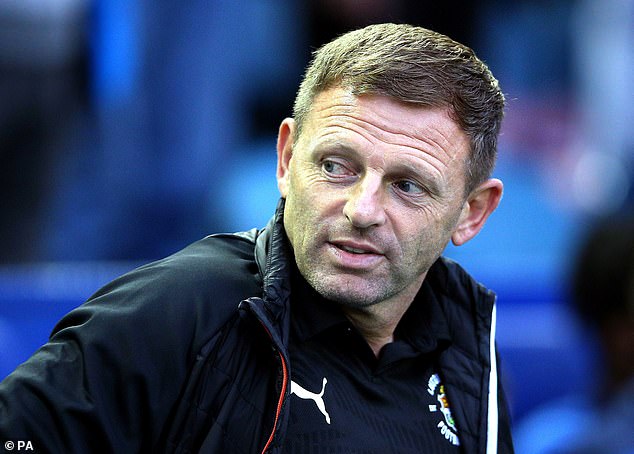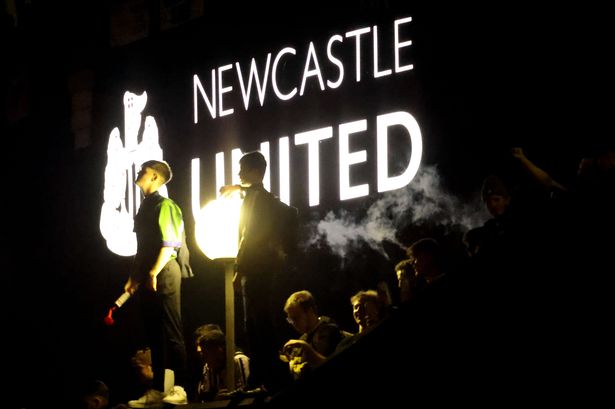News of Graeme Jones’s imminent appointment has been greeted with a mixture of bafflement and mockery, the latter notably from Rob Lee whose son played under Jones in his one managerial job at Luton. And it’s true that his record at Luton ‘ 35 points from 37 games, 23rd‘position, and impending relegation’ hardly inspires confidence. But a look at Jones’s coaching career and the current situation at the club suggests perhaps a more intriguing story.
*****
Born in Gateshead and now 50 years old, Jones played more than 300 games in the lower leagues in England and in Scotland, scoring more than a hundred goals. His best spell came at Wigan in the mid-to-late 1990s,where he still holds the record for league goals in a single season: 31 in 1995’96.Before that, he spent five years playing in non-league football, steadily building a career as a coach at the same time. In fact, his first job in football was a community coaching role for Newcastle while he was playing for North Shields. He completed his A Licence coaching badge while still a player and also worked for a number of years in the youth set-up at Middlesbrough.
Michael Martin on the unanswered questions of the ongoing takeover saga/drama that is draining life out of #NUFC – https://t.co/uLKti99n2k
— True Faith: Newcastle United Fanzine and Podcast (@tfNUFC) January 24, 2021
Jones’s playing stint at Wigan overlapped with that of Roberto Martinez, and it’s Jones’s relationship with the latter that has shaped his coaching career. He worked alongside Martinez as his assistant at Swansea (2007’09), Wigan (2009’13), Everton (2013’16), and Belgium (2016’18), winning the FA Cup in 2013 and finishing 3rd at the World Cup in 2018. Clearly, he’s coached some of the best players in the world, and he was linked with numerous managerial posts before taking that step up at Luton.
He describes himself as being ‘95% new school and 5% old school’; part of the ‘new school of coaching’, he obviously thinks hard about the game. He values Martinez as ‘intelligent, thoughtful, and highly tactical’, defining his own role as dealing with ‘outside influences’ and providing technical and tactical input. Those of us looking for clues as to what he might bring to Newcastle will notice the way he talks about turning around a group of players at Swansea who were not playing to their potential. He talks about the importance of ‘standards’, of fairness and honesty, that players ‘have to be led until they’ve earned the right to be trusted’.
Whatever happened at Luton ‘ and there is mitigation in a team that was newly promoted and a parting of ways that seems to have been as much a financial, Covid-led decision as a managerial one ‘ he is undoubtedly a highly respected coach.
*****
Player Ratings from TF – Jeff Hendricks, Jonjo Shelvey look away now – https://t.co/TJ3rL6CTvg #NUFC
— True Faith: Newcastle United Fanzine and Podcast (@tfNUFC) January 24, 2021
Like everything else at St James’ Park these days, the decision to approach Jones is shrouded in mystery. Trying to discern a plan is like Kremlin-gazing during the Cold War. But there are two main possibilities.
The first is that Bruce himself has recognised that he needs more technical input, a fresh face with new ideas to bolster the coaching side. In this interpretation, Jones’s appointment would only strengthen Bruce’s position. You don’t invest in supporting your head coach if you’re planning on removing him. The second is that the initiative comes from elsewhere in the club hierarchy, and that the appointment significantly undermines Bruce’s position. In more extreme versions of this theory, Jones provides a handy caretaker for the moment of Bruce’s imminent demise or even a bridge to the subsequent appointment of Eddie Howe or Martinez, for whom Jones would then act as assistant.
The Charlotte Show on TF @charlottehope with @GeorgeCaulkin – with 70s US gritty cop art-work graphics at no extra charge – https://t.co/oY002HaiOu #NUFC
— True Faith: Newcastle United Fanzine and Podcast (@tfNUFC) January 23, 2021
The problem with the first theory is that it assumes a degree of self-awareness that Bruce has not shown hitherto, not to mention the confidence to be surrounded by a better qualified technical mind who could easily step in and replace him. The astonishingly curt response Bruce gave last night when asked about the appointment also argues against this interpretation.
The problem with the second possibility is that it depends on a degree of football knowledge that Charnley has kept well hidden until now, unless the suggestion has come from another influential figure behind the scenes. Perhaps Jones’s name even came up in the job search that ended in Bruce’s appointment ‘ if there was one, that is. Certainly, it feels like typical Ashley action on the cheap.
THE ALTERNATIVE VIEW – TRUE FAITH – Newcastle United's only hard-copy fanzine, on the go since 1999 – support your local fanzine and keep independent, fan-led coverage of your club going – https://t.co/qiJyd3HGST #NUFC
— True Faith: Newcastle United Fanzine and Podcast (@tfNUFC) January 21, 2021
So where does this leave us? The most positive scenario is a quick managerial sacking, or even a resignation under the pretext of outside interference, followed by Jones playing the Roeder role to Bruce’s Souness. But, in the meantime, it’s difficult to imagine this as a solution that will change things in any meaningful way. It would take a remarkable strength of character on Jones’s part to turn things around, not to mention a willingness on Bruce’s part to accept someone else’s input.
Until something more radical happens, it’s difficult to escape the feeling that the deckchairs are being re-arranged on the Titanic.
MATTHEW PHILPOTTS – @Mjp19731




